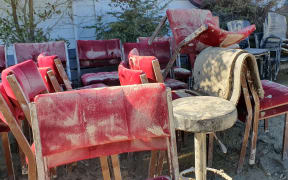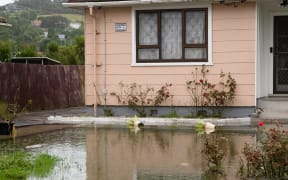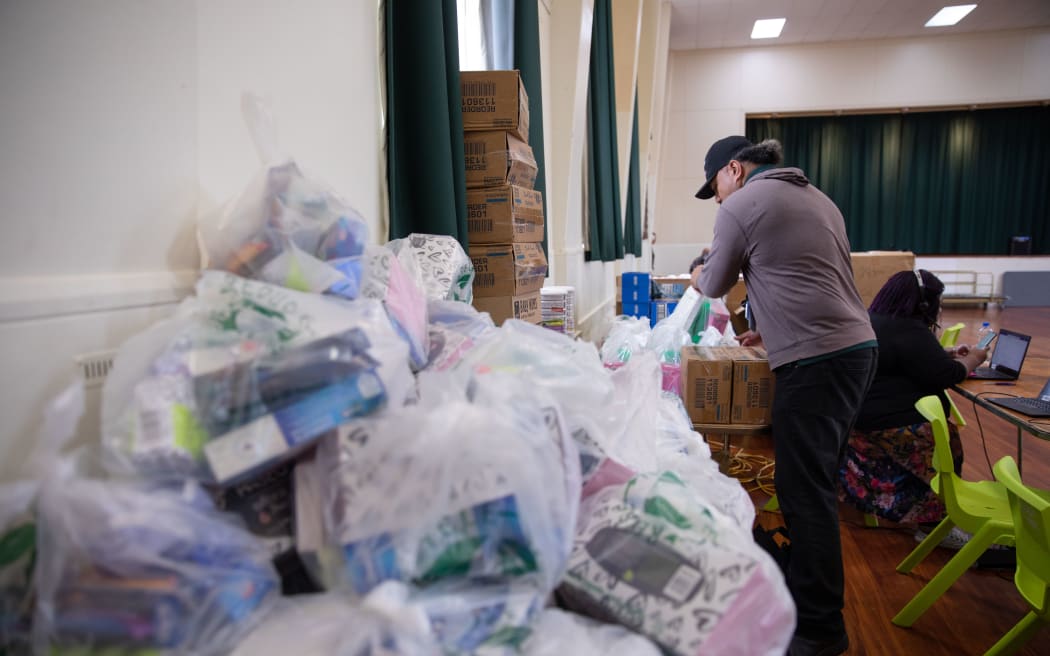
The shelter in Māngere will close its doors on Friday, after supporting the community for almost a month. Photo: RNZ/Angus Dreaver
Civil Defence centres in Auckland are hanging on by a thread after weeks of non-stop work brought on by severe weather.
But the mostly volunteer teams behind the shelters are resolved to keep them open for as long as they are needed.
Kelston Te Pae o Kura Civil Defence centre site manager Eddie Tuiavaii said he was impressed by the resilience of his staff.
"The days are incredibly long, so what is important is the mental and physical wellbeing of all these volunteers," he said.
"It's good food, it's a lot of laughter, and it's just a lot of support and goodwill [that keeps them going]."
A bit of hot chocolate did not hurt either. "We brew a lot of Koko Samoa, Samoan cocoas," Tuiavaii said.
The numbers of people seeking aid had dropped, but plenty of families were still displaced.
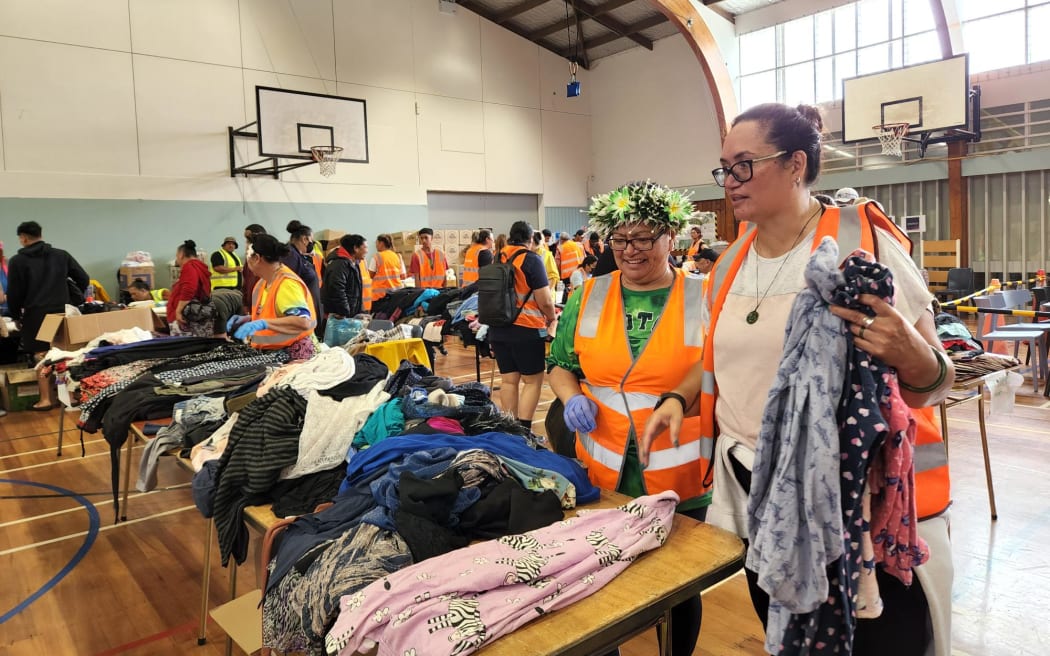
Hundreds were being helped by organisations and volunteers at the Māngere Centre which was set up in response to the flooding in the city. Photo: RNZ / Lucy Xia
Tuiavaii could see some familiar faces. He said some families had been bounced between shelters and temporary housing multiple times.
"Some families have been with us [at a previous shelter,] they've gone into accommodation, they've come back to a Civil Defence centre, they've gone into accommodation, and now they've had to come back with us," he said.
"It's exhausting for the families, [and] it's incredibly unsettling."
It was very difficult for these families to settle into a sense of normalcy, and regain a bit of what they had lost, Tuiavaii said.
"It's an emotional experience no matter what your situation is. But what we do see is that typical Kiwi resilience," he said.
"Look, it's a crap situation, it's not ideal, but we get it. Our families are very, very good, very understanding."
There were not enough places for people to go to, Tuiavaii said. Though he is not involved in the process, "you can kind of deduce from various conversations, the bottleneck is there's just not enough accommodation at the moment".
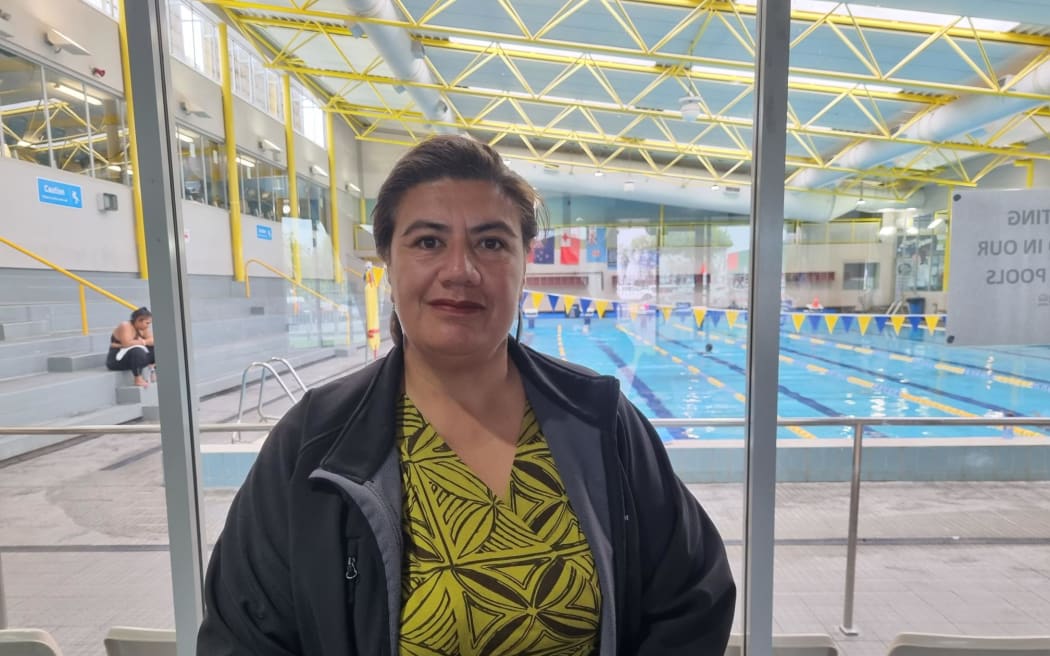
Maungakiekie-Tāmaki Ward Councillor Josephine Bartley says there is a lot of demand for shelter and accommodation. Photo: RNZ/ Felix Walton
Maungakiekie-Tāmaki Ward Councillor Josephine Bartley agreed.
"The biggest need is shelter," Bartley said.
"Getting them into temporary accommodation and then hopefully a pathway into their own home."
One family had been in "limboland" for almost two weeks, Bartley said.
"Everyone's tired," she said.
"[It's been] 10 days now, going on 11, that they've been in this evacuation centre with their children. Just after the cyclone hit they came here. They're still waiting for a place to go."
Tuiavaii could not say whether there was light at the end of the tunnel.
"Everybody's working really hard to find a solution to the bottleneck, but in the meantime we're doing our best," he said.
"We're looking after them with love, care, kindness and empathy."
For another Civil Defence centre, the job was almost done. The shelter in Māngere will close its doors on Friday, after supporting the community for almost a month.
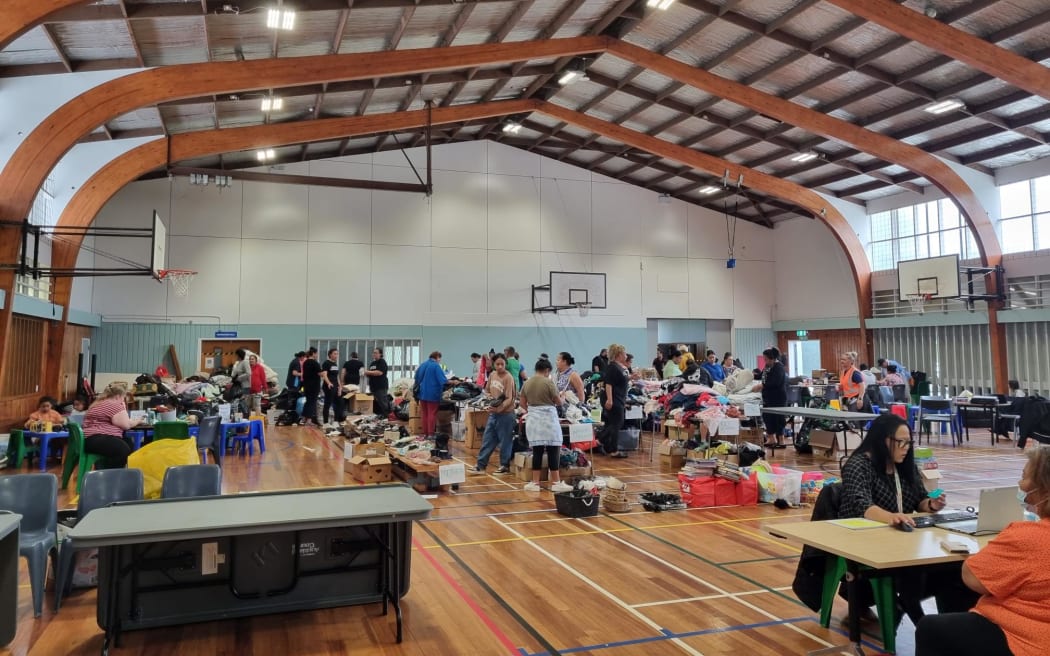
The Māngere Welfare Centre was shifted into the Moana-Nui-a-Kiwa fitness centre, to meet the need for help in the community earlier this month. Photo: RNZ/ Felix Walton
Manukau Ward Councillor Alf Filipaina said his team was immensely proud of what it accomplished.
"Over 21,000 individuals have been fed by the group that's here," he said. "Man, it's been amazing."
As fewer people walked through its doors, the team in Māngere decided their resources would be better used elsewhere.
"We've decided as a leadership team to close the doors, because the numbers are definitely going down," Filipaina said. "We've got six people in total and they will be housed by the end of the day."
It was no longer accepting donations and will redistribute the leftovers to those who need them.
But it did not mean they were leaving the community behind.
"We're talking with a Pacific organisation to continue, on a smaller scale, with an information hub for our community," Filipaina said.
The volunteers, who had been working long hours since the centre opened on 29 January, deserved a long rest and a pat on the back, he said.
"The team here, we've done an awesome job and we should be proud," he said. "That's how we roll with our community, we stood up and said: hey, we're here to help."
With the Māngere centre's closure, six shelters will remain open in Auckland at Kelston, Henderson, Glen Innes, Muriwai, Waimauku, and Piha.


